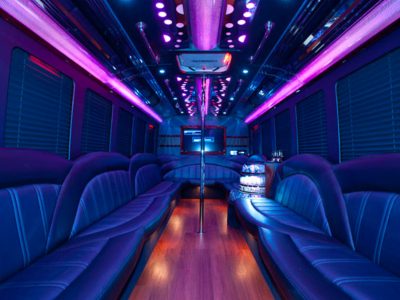Insights for Drivers Navigating Their Vehicle Ownership Options
The taxi industry has always been a dynamic field, requiring drivers to adapt to market trends, technological advances, and changing customer expectations. For York taxi drivers, one of the biggest decisions impacting their livelihoods is choosing whether to lease or own their vehicles. It’s not just about the upfront costs; the choice between leasing and owning has far-reaching implications for everything from running costs to flexibility and profit margins. If you’re a driver or fleet owner weighing your options, this guide will help you navigate the pros and cons of each approach.
Upfront Costs: Leasing Offers Low Barriers to Entry
One of the biggest advantages of leasing is its lower initial cost. Leasing a taxi usually requires a down payment or initial rental, but this is far less than what you’d need to purchase a car outright or via finance. This low upfront cost is particularly appealing to new drivers entering the industry or those who don’t have significant capital to invest.
Owning a taxi, on the other hand, requires a larger financial commitment upfront. Even if you opt for a vehicle loan, you’ll need to put down a deposit, which can stretch your budget. While owning does give you an asset, the financial burden can be a significant deterrent for drivers trying to get on the road quickly.
Monthly Costs: Predictability vs Potential Savings
Leasing is attractive for its predictable monthly costs. You’ll typically pay a fixed amount that covers the lease and often includes extras like servicing, maintenance, and even insurance in some cases. This makes it easier to manage cash flow and avoid unexpected expenses, which can be a lifesaver in a profession where income can fluctuate based on seasons or demand.
Ownership, by contrast, comes with variable monthly expenses. While you don’t have a lease payment to worry about once the car is paid off, you’re responsible for maintenance, repairs, and insurance costs. Over time, these costs can add up, especially as your vehicle ages. However, if you’re savvy with maintenance and choose a reliable car, the long-term savings can outweigh the predictable costs of leasing.
Depreciation: The Hidden Cost of Ownership
Every driver knows that vehicles lose value the moment they’re driven off the forecourt. Depreciation is a major concern for taxi drivers who own their vehicles, as the heavy mileage associated with taxi work accelerates this loss of value. When it comes time to sell or trade in your car, you may find its worth significantly diminished, which can eat into your profits.
Leasing removes this worry entirely. Since you don’t own the car, depreciation is not your problem. Once the lease term ends, you simply return the vehicle and lease a newer model. For drivers who want to avoid the hassle of resale and keep their vehicles up-to-date, leasing is an attractive option.
Flexibility: Leasing Wins for Updates, Ownership Wins for Freedom
In a fast-paced industry like the taxi trade, having access to modern, efficient vehicles is crucial. Leasing gives you the flexibility to upgrade to a newer model every few years, ensuring you benefit from the latest fuel-efficient technology, safety features, and customer comfort enhancements. This can be a huge selling point for drivers looking to maintain a competitive edge in the market.
Owning a taxi, however, gives you complete control over the vehicle. You can modify it to suit your preferences, whether that’s adding custom features or fitting a partition for customer safety. You’re not tied to mileage limits, which are a common restriction in lease agreements and can be a headache for drivers who cover extensive distances. Ownership gives you the freedom to use the car as you see fit, but it comes at the cost of flexibility when it comes to upgrading.
Tax Benefits: Comparing Leasing and Ownership for Drivers
From a financial perspective, it’s worth considering the tax implications of leasing versus owning a taxi. In the UK, lease payments are typically deductible as a business expense, which can reduce your taxable income. This is particularly beneficial if your lease agreement includes maintenance or other costs, as these can also be claimed.
When you own your vehicle, you can claim tax relief on the depreciation through capital allowances. Additionally, expenses like repairs, servicing, and insurance are tax-deductible. While the tax benefits of ownership may not be as straightforward as leasing, they can be substantial over time, especially for drivers planning to operate their taxis for many years.
Long-Term Costs: Ownership Pays Off, Leasing Adds Up
If you’re planning to stay in the taxi trade for the long haul, owning a vehicle can be more cost-effective. Once you’ve paid off the car, you no longer have monthly payments, which means you can keep more of your earnings. Even with ongoing maintenance and repairs, owning a reliable vehicle can save you money in the long term compared to perpetual lease payments.
Leasing, however, becomes more expensive over time. While the fixed costs and included services are convenient, you’re essentially renting the vehicle and never building equity. If you plan to stay in the business for many years, the cumulative cost of leasing can far exceed the cost of owning a car outright.
Risk Management: Leasing Minimises Exposure
One of the lesser-discussed benefits of leasing is risk management. With ownership, you bear the full financial risk if your car breaks down, requires expensive repairs, or is involved in an accident. This can lead to significant unexpected costs, especially as the vehicle ages.
Leasing shifts much of this risk to the leasing company. Most lease agreements include maintenance and repair clauses, which means you’re covered for many common issues. This is especially appealing for drivers who want peace of mind and don’t want to deal with the financial unpredictability of owning an older car.
The Resale Factor: Selling Can Be a Hassle
When you own a taxi York, selling it is your responsibility when you want to upgrade. This can be time-consuming and stressful, especially if the car’s high mileage or wear and tear make it difficult to find a buyer. Depreciation further complicates the resale process, as you’re unlikely to recoup a significant portion of your initial investment.
With leasing, there’s no need to worry about resale. You simply return the vehicle at the end of the lease term and move on to a new one. This convenience is a significant draw for drivers who value simplicity and want to avoid the hassle of selling.
Making the Right Choice for Your Needs
Ultimately, the decision between leasing and owning a taxi depends on your individual circumstances, financial goals, and business model. Leasing is ideal for drivers who prioritise low upfront costs, predictable expenses, and the flexibility to upgrade vehicles frequently. It’s a great option for those who want to minimise financial risk and don’t mind the ongoing cost of lease payments.
Ownership, on the other hand, is better suited to drivers who are in the trade for the long haul and want to maximise their earnings by eliminating monthly payments once the vehicle is paid off. It offers greater freedom and the potential for long-term savings but requires a higher upfront investment and a willingness to manage maintenance and depreciation.
Before making your decision, consider your financial situation, how much you plan to drive, and your long-term plans in the industry. By weighing the pros and cons carefully, you can choose the option that best aligns with your goals and ensures a smooth, profitable journey in the taxi trade.














Comments